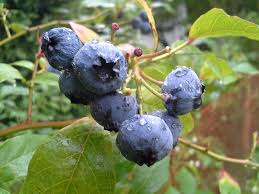Night vision becomes such a big issue as we age and if you consult your doctor, he or she will probably tell you that it is a normal part of aging; something that you may just have to live with. However, scientists have discovered that bilberries can help with night vision.
Bilberry is the European blueberry and has a strong reputation with night vision. During the World War II, the Royal Air Force pilots ate bilberry preserves before their night mission and stated that it helped to improve their night time vision. Though the medicinal benefit of this fruit requires further investigation, preliminary studies show that it is very beneficial in improving night vision. The parts of the plant used for medicinal purpose are dried leaves and fruits.
The Active Ingredients
Analysis shows that dried bilberries contain 10% tannins which explains their effectiveness in helping with night vision as well as diarrhea. These berries also contains a high amount of pectin which is helpful in calming diarrhea. Other essential constituents are fruit acids, invert sugar and anthocyanins.
The anthocyanins are very important in supporting night vision. The leaves of this plant are rich in chromium and manganese and contains high amounts of tannins that helps in night vision.
How It Works
Bilberries, as well as blackberries and blueberries, get their deep blue color form anthocyanins; a powerful antioxidants that protects the cells from oxygen molecules known as free radicals damage the body. Anthocyanins helps to improve night vision by keeping lens from clouding (cataracts) and the capillaries located at the back of the eyes from breaking down (macular degeneration). Anthocyanins is also known to improve circulation and strengthen the capillaries reducing varicose veins and hemorrhoids.
The Europeans use the dried leaves to treat mild diarrhea as they contain pectin, a soluble fiber which adds bulk to the stool and soothes the gut and tannin, a bitter compound that reduces tissue inflammation.
Bilberry Dose
The right dosage for dried bilberries is about 3 tablespoons daily. To make bilberry tea, boil 10g, which is about a tablespoon of crushed dried fruits in water for about 10 minutes then stain. The maximum daily dose is 60g of dried berries. If it is in the form of extract, take 240-480mg daily in divided doses.
Bilberry tea should not be used as a herbal medicine for more than a week. You should seek medical attention if the impaired vision or diarrhea persists.
Precautions
Bilberry extract as well as the fruit is very safe to use and has no known side effects. However the tea made from dried leaves should not be taken in large quantities and for long periods of time as they contain high amounts of tannin that can cause muscle spasm and severe weight loss. Taking bilberries can alter the way other medicines, remedies and even vitamins work and using it together with certain products can have harmful effects. Breastfeeding and pregnant women should avoid using bilberry extract unless it is prescribed by a doctor.
References
http://www.zhion.com/Bilberry.html
http://www.drwhitaker.com/natural-night-vision-aids/
http://www.webmd.com/eye-health/features/bilberry-extract-and-vision



Leave a Reply